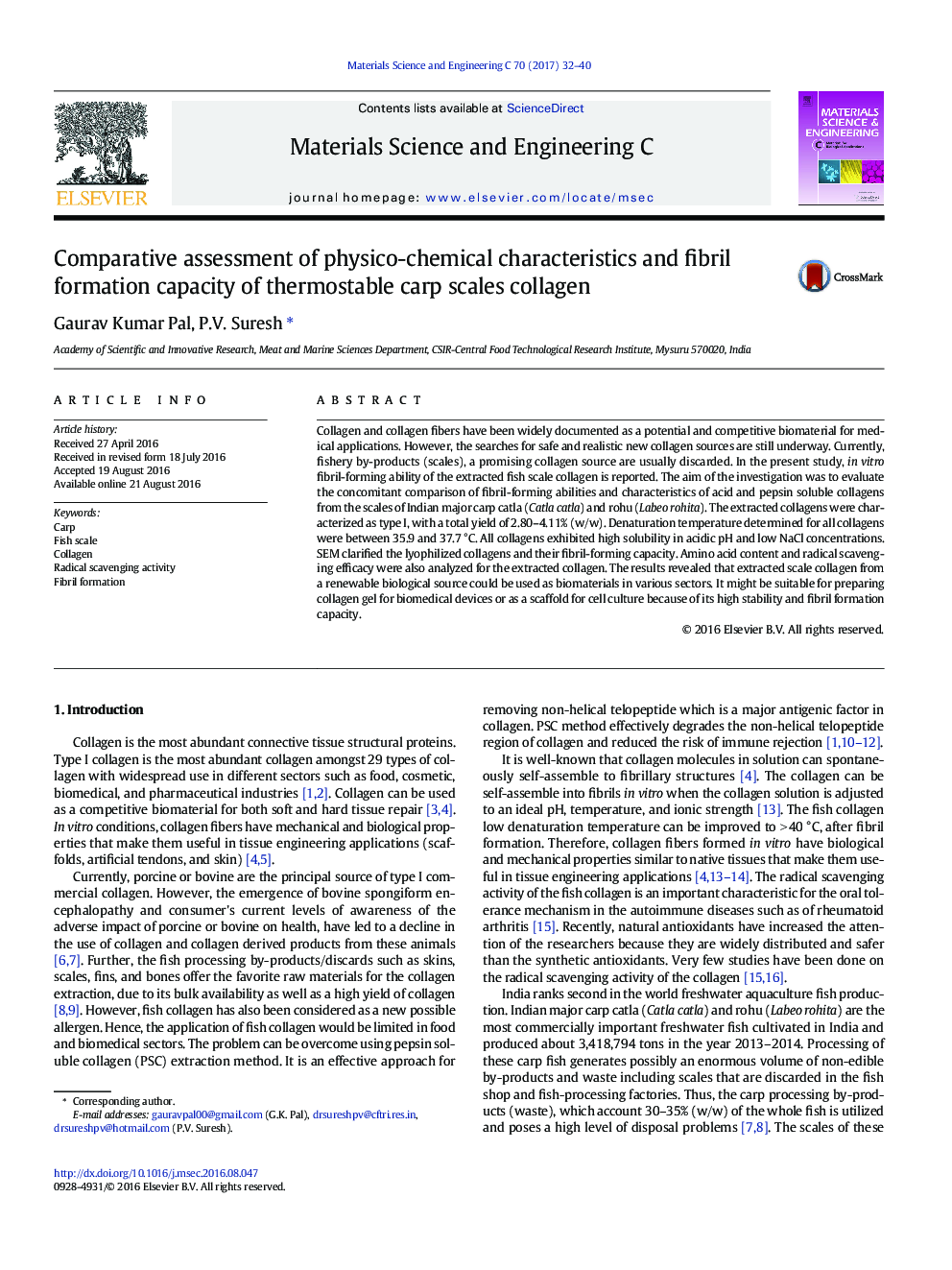| Article ID | Journal | Published Year | Pages | File Type |
|---|---|---|---|---|
| 1427804 | Materials Science and Engineering: C | 2017 | 9 Pages |
•Scales of Indian carps are potential sources of type I thermostable collagens.•Acid and pepsin soluble collagens showed the antioxidant and fibril-forming ability.•Isolated collagen can be used as potential biomaterials in medical sectors.•Study contributes to fish scale waste utilization for extracting bioactive collagen.
Collagen and collagen fibers have been widely documented as a potential and competitive biomaterial for medical applications. However, the searches for safe and realistic new collagen sources are still underway. Currently, fishery by-products (scales), a promising collagen source are usually discarded. In the present study, in vitro fibril-forming ability of the extracted fish scale collagen is reported. The aim of the investigation was to evaluate the concomitant comparison of fibril-forming abilities and characteristics of acid and pepsin soluble collagens from the scales of Indian major carp catla (Catla catla) and rohu (Labeo rohita). The extracted collagens were characterized as type I, with a total yield of 2.80–4.11% (w/w). Denaturation temperature determined for all collagens were between 35.9 and 37.7 °C. All collagens exhibited high solubility in acidic pH and low NaCl concentrations. SEM clarified the lyophilized collagens and their fibril-forming capacity. Amino acid content and radical scavenging efficacy were also analyzed for the extracted collagen. The results revealed that extracted scale collagen from a renewable biological source could be used as biomaterials in various sectors. It might be suitable for preparing collagen gel for biomedical devices or as a scaffold for cell culture because of its high stability and fibril formation capacity.
Graphical abstractFigure optionsDownload full-size imageDownload as PowerPoint slide
